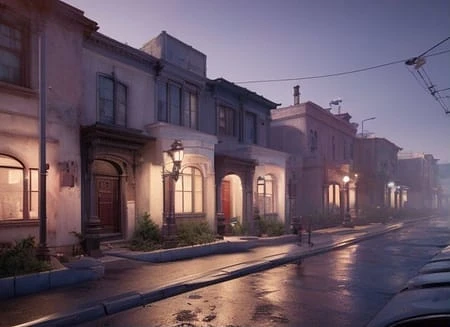This is the fine-tuned Stable Diffusion model trained on high resolution 3D artworks.
The name: I used Cinema4D for a very long time as my go-to modeling software and always liked the redshift render it came with. That is why I was very sad to see the bad results base SD has connected with its token. This is my attempt at fixing that and showing my passion for this render engine.
If you enjoy my work and want to test new models before release, please consider supporting me
Originally posted by Nitrosocke to HuggingFace
What is Redshift Diffusion?
Redshift Diffusion is a highly specialized Image generation AI Model of type Safetensors / Checkpoint AI Model created by AI community user civitai. Derived from the powerful Stable Diffusion (SD 1.5) model, Redshift Diffusion has undergone an extensive fine-tuning process, leveraging the power of a dataset consisting of images generated by other AI models or user-contributed data. This fine-tuning process ensures that Redshift Diffusion is capable of generating images that are highly relevant to the specific use-cases it was designed for, such as 3d, render, style.
With a rating of 5 and over 9 ratings, Redshift Diffusion is a popular choice among users for generating high-quality images from text prompts.
Can I download Redshift Diffusion?
Yes! You can download the latest version of Redshift Diffusion from here.
How to use Redshift Diffusion?
To use Redshift Diffusion, download the model checkpoint file and set up an UI for running Stable Diffusion models (for example, AUTOMATIC1111). Then, provide the model with a detailed text prompt to generate an image. Experiment with different prompts and settings to achieve the desired results. If this sounds a bit complicated, check out our initial guide to Stable Diffusion – it might be of help. And if you really want to dive deep into AI image generation and understand how set up AUTOMATIC1111 to use Safetensors / Checkpoint AI Models like Redshift Diffusion, check out our crash course in AI image generation.
Popularity
Info
Latest version (v1): 1 File
About this version: v1
This model was trained using the diffusers based dreambooth training by ShivamShrirao using prior-preservation loss and the train-text-encoder flag




